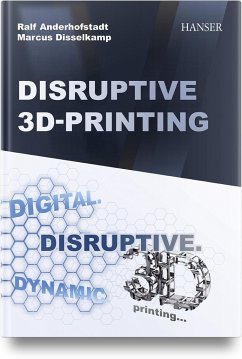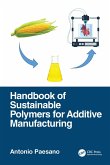This book unites the two sides of additive manufacturing: 1) the technical aspect of 3D printing of very different materials and 2) the disruptive consequences for value chains between producers, intermediaries, and customers due to modern business models. This is because 3D printing breaks with many existing business models: companies take over functions from their previous suppliers (following the "do-it-yourself" trend), intermediaries lose their livelihood (so-called "disintermediation"), manufacturers move their production to decentralized locations (e.g., retailers, car dealerships, or hospitals, so-called "decentralized production"), and (end) customers become much more intensive "prosumers" than marketing (as creator of this term) could ever imagine.The business models of many existing companies from very different industries are becoming toxic, i.e., threatening their very existence, as in logistics and warehousing, industry, services, retail, or customer service. Conversely, there are also many opportunities for modern, existence-securing business models, which the book discusses in more detail. In this way, this book not only shows to a broad range of readers the dangers of disruptive 3D printing technology, but also offers solution approaches and procedural models for identifying new economic livelihoods and competitive advantages. Thanks to the collaboration of the two authors, a profound knowledge of already existing references and management models can be drawn upon.
Hinweis: Dieser Artikel kann nur an eine deutsche Lieferadresse ausgeliefert werden.
Hinweis: Dieser Artikel kann nur an eine deutsche Lieferadresse ausgeliefert werden.
"Ralf Anderhofstadt and Marcus Disselkamp's recent publication illuminates the technical intricacies of additive manufacturing and various materials, in addition to exploring disruptive business models that impact the entire value chain. As such, their work addresses a highly relevant and contemporary subject matter. [...] Following the publication of the German version in August 2022, the English version includes further international AM experts with their perspectives in the English book. In addition, other exciting new topics have been added in the English version, such as linking 3D printing to the metaverse or even completely new, promising 3D printing production processes." 3printr.com, 09.03.2023








